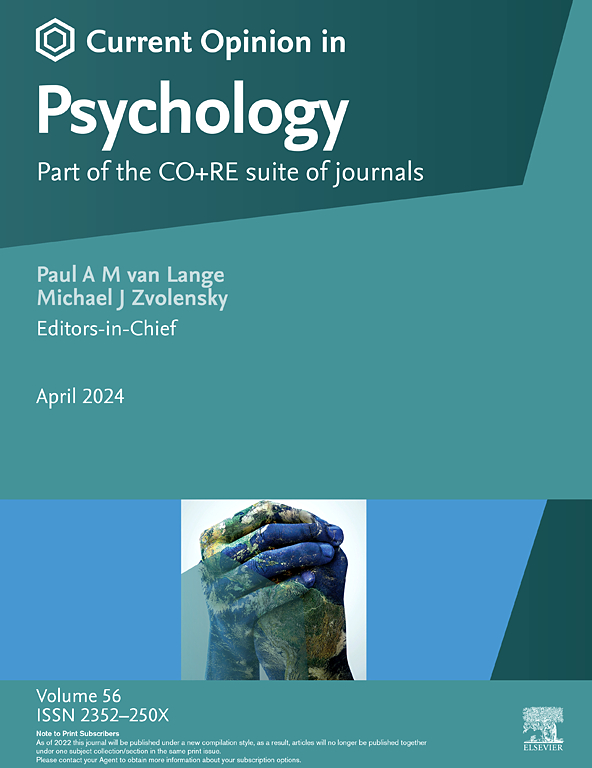Personality and job performance: A review of trait models and recent trends
IF 6.9
2区 心理学
Q1 PSYCHOLOGY, MULTIDISCIPLINARY
引用次数: 0
Abstract
Personality traits are among the strongest non-cognitive predictors of job performance, but many trait models exist that are used to predict different performance outcomes. To structure and synthesize this vast amount of research, we review empirical evidence and emerging trends regarding the relations of the Big Five, HEXACO, and Dark Triad traits with three indicators of job performance (i.e., task performance, organizational citizenship behavior [OCB], and counterproductive work behavior [CWB]). We find that personality traits explain most variance in CWB, followed by OCB, and then task performance. Conscientiousness is the strongest predictor across performance outcomes, and the HEXACO traits explain more variance in job performance than the Big Five or Dark Triad traits. Yet, traits do not operate in isolation, but rather interact with situational characteristics in guiding behavior (e.g., trait activation). As such, accounting for situational characteristics can further increase the validity of personality for performance. Moreover, we review recent trends in personality-performance research, such as personality development and dynamics, non-self-rated personality measures, and the use of artificial intelligence (AI). We conclude by highlighting practical implications of our findings for personnel selection and for increasing person-job fit.
人格与工作表现:特质模型及其最新趋势综述
人格特质是工作表现最有力的非认知预测因素之一,但也存在许多用来预测不同绩效结果的特质模型。为了构建和综合这些大量的研究,我们回顾了大五人格、HEXACO人格和黑暗人格特质与工作绩效三个指标(即任务绩效、组织公民行为(OCB)和反生产行为(CWB))之间关系的实证证据和新趋势。我们发现人格特质解释了最主要的CWB差异,其次是组织行为,然后是任务绩效。尽责性是所有绩效结果中最强的预测因素,与大五人格或黑暗人格相比,HEXACO性格特征能解释更多的工作绩效差异。然而,特质并不是孤立地运作,而是与情境特征相互作用,引导行为(例如,特质激活)。因此,考虑情境特征可以进一步提高人格对绩效的有效性。此外,我们回顾了人格绩效研究的最新趋势,如人格发展和动态、非自评人格测量和人工智能(AI)的使用。最后,我们强调了我们的研究结果对人员选择和提高个人与工作的契合度的实际意义。
本文章由计算机程序翻译,如有差异,请以英文原文为准。
求助全文
约1分钟内获得全文
求助全文
来源期刊

Current Opinion in Psychology
PSYCHOLOGY, MULTIDISCIPLINARY-
CiteScore
12.10
自引率
3.40%
发文量
293
审稿时长
53 days
期刊介绍:
Current Opinion in Psychology is part of the Current Opinion and Research (CO+RE) suite of journals and is a companion to the primary research, open access journal, Current Research in Ecological and Social Psychology. CO+RE journals leverage the Current Opinion legacy of editorial excellence, high-impact, and global reach to ensure they are a widely-read resource that is integral to scientists' workflows.
Current Opinion in Psychology is divided into themed sections, some of which may be reviewed on an annual basis if appropriate. The amount of space devoted to each section is related to its importance. The topics covered will include:
* Biological psychology
* Clinical psychology
* Cognitive psychology
* Community psychology
* Comparative psychology
* Developmental psychology
* Educational psychology
* Environmental psychology
* Evolutionary psychology
* Health psychology
* Neuropsychology
* Personality psychology
* Social psychology
 求助内容:
求助内容: 应助结果提醒方式:
应助结果提醒方式:


